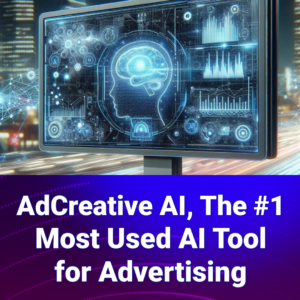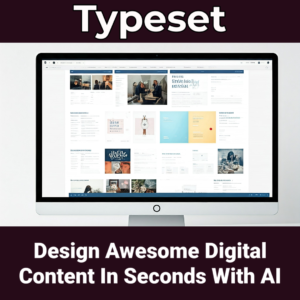Artificial Intelligence (AI) is no longer just a thing of the future; it’s here now and changing how businesses work. Companies are starting to see how powerful AI can be, but what does AI transformation really mean for your company? This article will explain how AI can impact businesses, offering tips and steps to use its power effectively.
Understanding AI Transformation
In the ever-evolving landscape of business technology, AI transformation represents an untapped goldmine of opportunity. It’s not just about adopting the latest AI gadgets and gizmos. No, AI transformation is about weaving artificial intelligence into the very fabric of your business strategy, creating a tapestry of innovation, efficiency, and growth that leaves competitors in awe.
You see, AI transformation is like a hidden treasure trove within your company, just waiting to be discovered. Many business leaders walk right past this wealth every day, not realizing the potential beneath their feet. But those who recognize the value of AI and start harnessing its potential early on? They’ll be the ones striking it rich in the new economy
The Scope of AI Capabilities
Let me tell you, the capabilities of AI are nothing short of extraordinary. From automating mind-numbing tasks to crunching mountains of data in the blink of an eye, AI is rewriting the rules of how businesses operate. Take ChatGPT, for instance. This marvel of modern technology is turning processes that once required an army of workers into tasks that can be completed with a few keystrokes.
But here’s the kicker: we’ve only scratched the surface of what AI can do. As we speak, brilliant minds are pushing the boundaries of AI, unlocking new possibilities that will revolutionize industries we haven’t even thought about yet. The potential is staggering, my friends.
The Misconception of AI as a Single Tool
Now, I can’t tell you how many times I’ve heard folks say, “Oh, we use XYZ for that.” But let me tell you something – thinking of AI as just one tool is like thinking of the internet as just a fancy phone book. You’re missing the big picture!
The real power of AI lies in its ability to transform every nook and cranny of your business. From product development to customer service, from marketing to operations, AI can supercharge it all. Understanding this fundamental truth is the first step on the path to true AI transformation. It’s about seeing the forest, not just the trees
The Comprehensive Impact of AI on Businesses
People: Empowering Your Workforce
AI can greatly affect your company’s workforce. By offering 1-on-1 coaching on AI use, companies can help employees use AI’s power, boosting productivity and new ideas.
Product: Innovating Offerings
AI can drive product innovation by helping companies create new products and services that were not possible before. For example, AI can analyze customer feedback to find problems and create solutions that better meet customer needs.
Process: Streamlining Operations
AI can make business processes more efficient and effective. By analyzing thousands of reviews, AI can help companies find and fix customer problems, improving overall customer satisfaction.
Steps to Integrate AI Effectively
1. Assess Your AI Readiness
Before starting AI transformation, check if your company is ready. Look at your current processes, technology, and workforce to find areas where AI can have the biggest impact.
2. Develop a Clear AI Strategy
A clear AI strategy is key for successful AI transformation. Set your goals, find key areas for AI use, and create a plan for implementation. Make sure your strategy matches your overall business goals.
3. Invest in the Right AI Tools and Technologies
Investing in the right AI tools and technologies is crucial for business success. Choose solutions that fit your business needs and can drive significant value. Think about factors like scalability, ease of use, and integration capabilities when making your selection.
When navigating the AI landscape, it’s essential to look beyond the hype and focus on tools built for long-term value. The market is flooded with thousands of new AI solutions, each promising revolutionary results. However, not all of these will stand the test of time or deliver consistent value.
Instead of chasing every new “bright shiny object,” businesses should carefully evaluate AI tools based on their proven track record, adaptability, and alignment with long-term strategic goals. Look for platforms with strong developer communities, regular updates, and a clear roadmap for future enhancements.
By choosing established, well-supported AI tools that address core business needs, companies can avoid the pitfalls of short-lived trends and build a sustainable AI infrastructure that grows with their evolving requirements.
4. Foster a Culture of Innovation
AI transformation needs a culture of innovation. Encourage your employees to embrace AI and try new ideas. Provide training and resources to help them develop the skills needed to use AI effectively.
5. Monitor and Measure Success
Regularly check and measure the success of your AI projects. Use key performance indicators (KPIs) to track progress and find areas for improvement. Continuously update your AI strategy based on feedback and results.
Challenges and Solutions in AI Transformation
1. Data Privacy and Security
Data privacy and security are big concerns in AI transformation. Make sure your AI solutions follow data protection rules and have strong security measures to protect sensitive information.
2. Ethical Considerations
AI raises several ethical questions, like bias and fairness. Create ethical guidelines for AI use and make sure your AI solutions are transparent, fair, and unbiased.
3. Integration with Existing Systems
Integrating AI with existing systems can be tough. Work with experienced AI vendors and consultants to ensure smooth integration and minimize disruption to your operations.
4. Managing Change
AI transformation involves big changes, which can be met with resistance. Explain the benefits of AI to your employees and involve them in the transformation process to gain their support.
Case Studies: Successful AI Transformation
1. Company A: Revolutionizing Customer Service
Company A used AI-powered chatbots to handle customer questions, reducing response times and improving customer satisfaction. The chatbots handled many queries, freeing up human agents to focus on more complex issues.
2. Company B: Enhancing Product Development
Company B used AI to analyze customer feedback and find trends. This helped them create new products that better met customer needs, resulting in increased sales and market share.
3. Company C: Optimizing Supply Chain Management
Company C integrated AI into their supply chain management system, allowing them to predict demand more accurately and optimize inventory levels. This reduced costs and improved efficiency.
The Future of AI in Business
The future of AI in business is bright, with endless possibilities for new ideas and growth. As AI technologies continue to evolve, companies that embrace AI transformation will be well-positioned to stay ahead of the competition and drive long-term success.
Emerging AI Trends
Several emerging AI trends are set to shape the future of business. These include AI-powered automation, predictive analytics, and personalized customer experiences. Companies that stay updated on these trends and include them in their AI strategies will lead in innovation.
The Role of AI in Sustainable Business Practices
AI can also help promote sustainable business practices. By optimizing resource use and reducing waste, AI can help companies minimize their environmental impact and contribute to a more sustainable future.
Conclusion
AI transformation is not just a buzzword; it’s a must for companies looking to succeed in the digital age. By understanding the impact of AI, creating a clear strategy, and addressing challenges, businesses can unlock the full potential of AI and drive new ideas, efficiency, and growth.
FAQs
What is AI transformation?
AI transformation means using AI technologies in a company’s products, services, and processes to drive new ideas, efficiency, and growth.
How can AI empower employees?
AI can empower employees by providing tools and resources that boost productivity and new ideas. For example, AI-powered coaching can help employees develop new skills and improve their performance.
What are the key steps to integrate AI effectively?
Key steps to integrate AI effectively include assessing AI readiness, creating a clear AI strategy, investing in the right AI tools, fostering a culture of innovation, and monitoring and measuring success.
What are the challenges in AI transformation?
Challenges in AI transformation include data privacy and security, ethical considerations, integration with existing systems, and managing change.
How can AI drive product innovation?
AI can drive product innovation by analyzing customer feedback and finding trends, helping companies create new products that better meet customer needs.
What is the future of AI in business?
The future of AI in business is bright, with emerging trends like AI-powered automation, predictive analytics, and personalized customer experiences set to shape the future of business.













